Don’t Come Home (Ya Klap Ban) is a recent Thai mini-series streaming on Netflix, presenting itself as a fascinating blend of horror, mystery, and family drama. Created by director Woottidanai Intarakaset and co-writer Aummaraporn Phandinthong, the series follows the lives of two women, Varee and Fah, as they become embroiled in a chilling mystery that goes beyond simple ghostly hauntings. Despite being initially marketed as a horror thriller, the show diverges into an intricate narrative that explores themes like domestic violence, motherhood, and the impact of generational trauma.
Bank Under Siege 1981 Spanish True Crime Drama on Netflix
- Writer & Creator — Woottidanai Intarakaset, Aummaraporn Phandintong
- Director — Woottidanai Intarakaset
- Genre — Horror, Mystery, Sci-Fi, Thriller
- Rating — 7.3/10 (IMDB)
- Stream — Netflix
- S/E — 1/6
Don’t Come Home Plot Overview: A Haunting Mystery with Twists
The series opens with a gripping, classic horror setup—a child screaming in her room after witnessing something terrifying. Practical effects add to the tension, with objects moving and unsettling moments creating an air of dread. The child, Min (played by Ploypaphas Fonkaewsiwaporn), along with her mother Varee (Woranuch Bhirombhakdi), are on a car journey that eventually leads them to an old family mansion. This deserted family home, hiding a sinister history, sets the stage for a haunting narrative that mixes suspense with revelations.
As Varee and Min settle into this eerie house, strange occurrences follow. Min soon disappears, launching a search led by police officer Fah (Pitchapa Phanthumchinda), and the plot transforms from horror to a detective thriller. This seamless genre-blending keeps audiences on their toes as the series steadily peels back layers of dark family secrets.
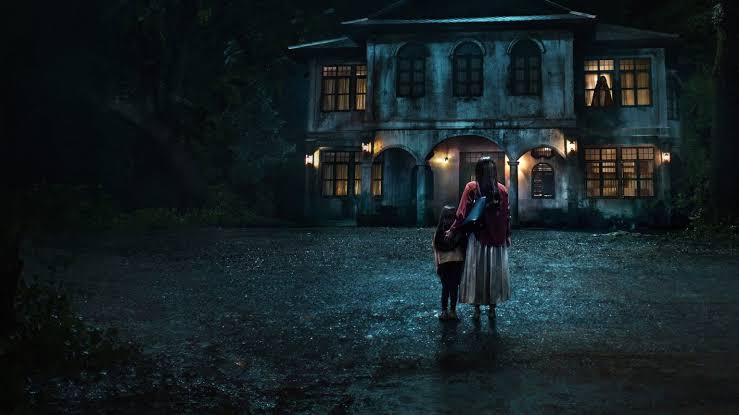
Arcane Season 2: Now on Netflix
Don’t Come Home Review
At its core, Don’t Come Home is about much more than supernatural scares. It revolves around three central women—Varee, her mother Panida (Cindy Sirinya Bishop), and Officer Fah—each struggling with the heavy responsibilities of motherhood. These characters share a complex web of relationships shaped by love, sacrifice, and, at times, unresolved trauma. Varee’s bruises and careful behavior suggest a history of abuse, hinting at her protective yet wary approach to motherhood. Her journey is not only about finding her daughter but also about facing her own past and breaking free from cycles of pain.
The show uses its horror elements not to instill fear but to metaphorically represent the echoes of trauma, portraying haunting as the enduring presence of painful memories. Each eerie scene or appearance in the house brings viewers closer to understanding the profound struggles these women endure.
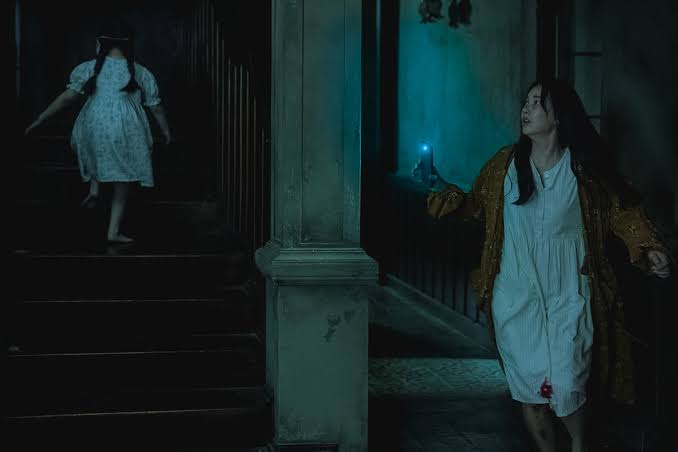
The Role of Time and Sci-Fi Elements: What sets Don’t Come Home apart from conventional horror is its innovative use of science fiction. Rather than being a pure haunted-house story, the narrative incorporates subtle sci-fi elements, suggesting that time itself may be distorted within the walls of the house. This concept allows the story to explore themes of cyclical trauma and family curses. The series suggests that trauma can trap people in loops, drawing parallels between time loops and the inescapable patterns in abusive or painful family histories.
While the time-travel aspects are not heavily emphasized, they serve as a unique plot device, adding depth and enabling the haunting to feel like a curse that spans generations. This element of time distortion mirrors the characters’ struggle to escape the past, both literally and metaphorically.
Don’t Come Home Cast
- Woranuch BhiromBhakdi as Varee
- Sahatchai Chumrum as Natee
- Pitchapa Phanthumchinda as Fah
- Theerapat Sajakul as Yutthachai
- Pariit Thimthong as Tae
- Tanyaphong Wichaisri as Aof
- Ploypaphas Fonkaewsiwaporn as Min
- Cindy Sirinya Bishop as Panida
- Savika Kanchanamas as Aon
- Vithaya Pansringarm as Vichai
- Patit Pisitakul as Danai (1 episode, 2024)
- Alina Marie Chang as Young Varee
- Marius Robin Schroeter as German power plant engineer
- Lalina Thongpramoon as Baby Min
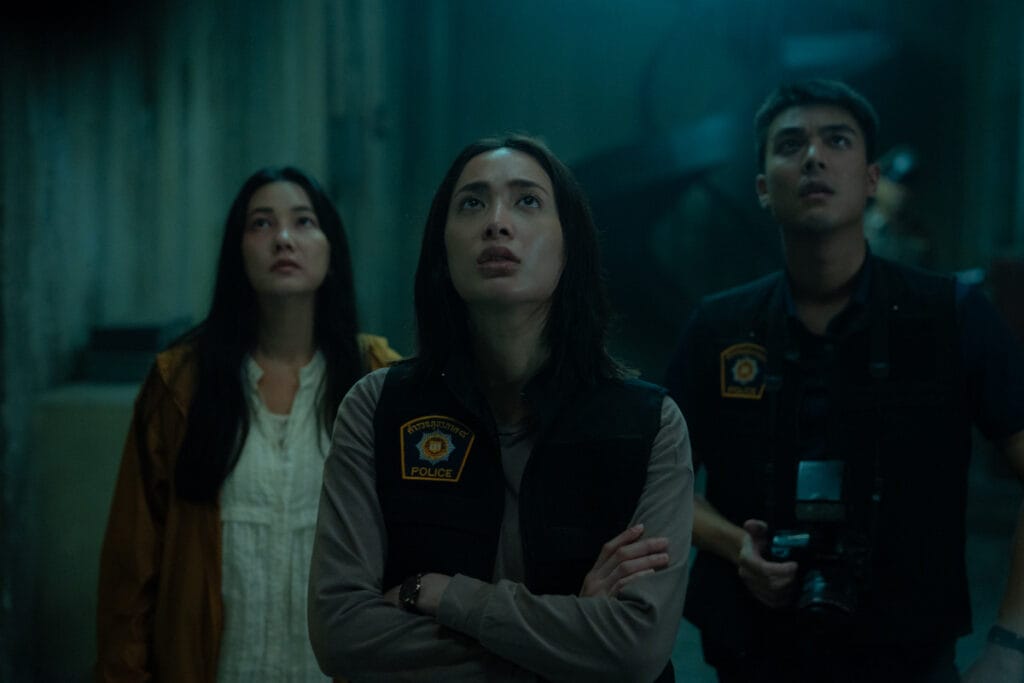
Atmosphere and Visual Storytelling
The series achieves a dark and ominous atmosphere with its visual style. Using low lighting, muted color tones, and eerie cinematography, the creators give the house a life of its own. The mansion feels like a character, exuding an almost suffocating sense of dread that adds to the suspense. The sound design enhances this atmosphere, with subtle creaks and distant whispers keeping viewers on edge without overwhelming them with jump-scares. Intarakaset’s direction leans on natural performances and real tension rather than excessive CGI, creating a more grounded horror experience.
Characters and Performances
The show’s strength also lies in the compelling performances by the cast, particularly Woranuch Bhirombhakdi as Varee. Her portrayal of a mother under duress—haunted by past trauma and fearing for her child—is both nuanced and authentic. Young actress Ploypaphas Fonkaewsiwaporn, who plays Min, also brings a convincing level of terror and innocence to her role, which adds an emotional layer to the series.
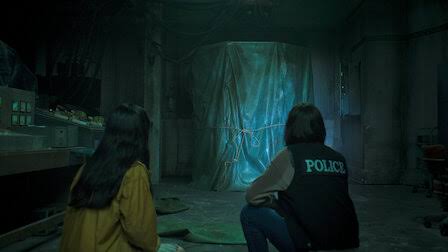
As Fah, Pitchapa Phanthumchinda provides a steadying contrast, embodying a woman with her own motivations and struggles as she tries to help Varee. These characters aren’t just victims or heroes; they’re complex figures shaped by their circumstances, and their interactions form the heart of the show.
Why Don’t Come Home is Worth Watching
In a world of formulaic horror and predictable thrillers, Don’t Come Home stands out for its originality and heart. It may not reinvent the genre, but it tackles themes like domestic abuse, family ties, and resilience in a way that resonates emotionally. The show’s balance of horror and heartfelt storytelling gives it universal appeal, making it a thought-provoking series for fans of both thrillers and dramas.
Moreover, its emphasis on explaining the plot clearly is a refreshing break from the trend of ambiguous endings. It respects the audience’s need for closure while still leaving room for reflection. Despite its mature themes, the show remains accessible, avoiding excessive violence or gore. With a TV-MA rating, it’s suitable for viewers who appreciate suspense without extreme horror.
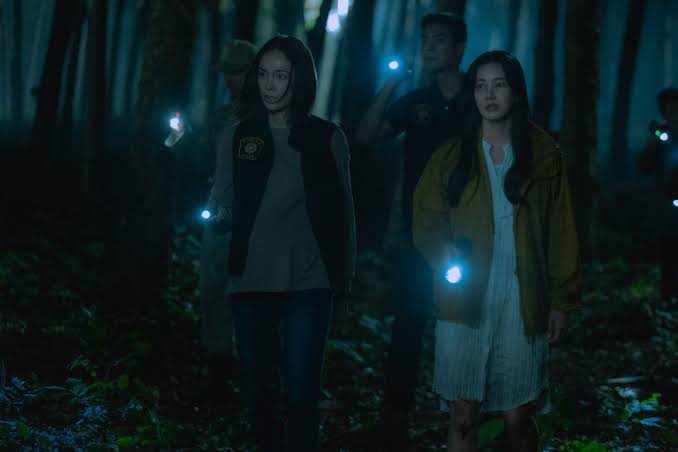
Conclusion
Don’t Come Home is more than just a horror series; it’s a poignant exploration of the past’s grip on the present, presented through a mystery thriller lens. It cleverly uses the haunted-house trope to discuss serious topics, making viewers reflect on issues that linger long after the screen fades to black. Although the horror may seem familiar, the depth of its themes and the emotional weight of its characters make it a series that’s not easily forgotten. For those looking for a genre-blending show that both entertains and enlightens, Don’t Come Home is a six-episode journey worth taking.

